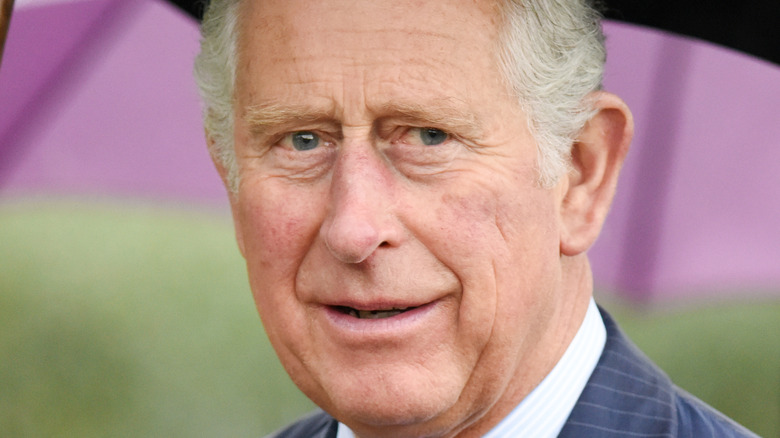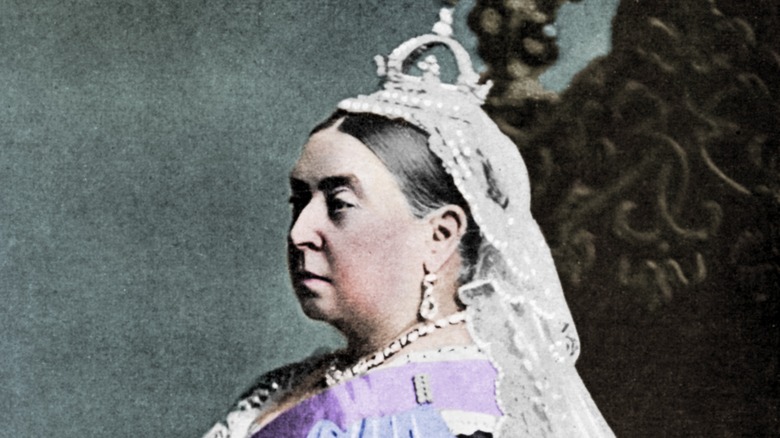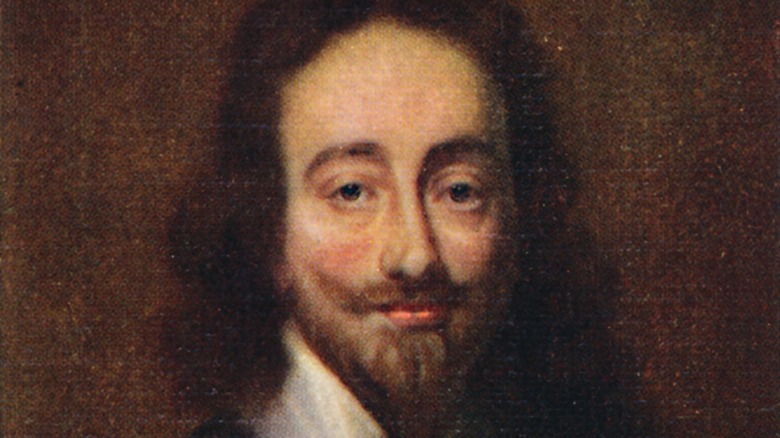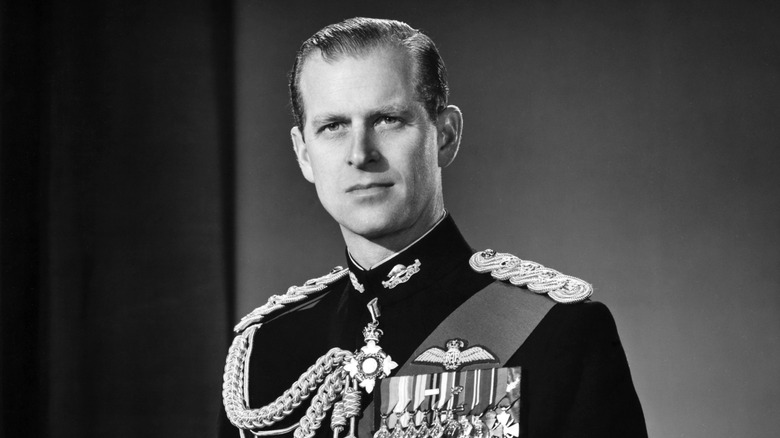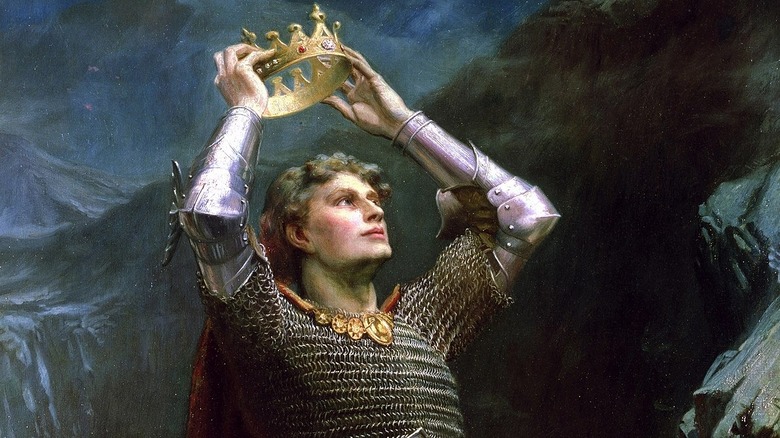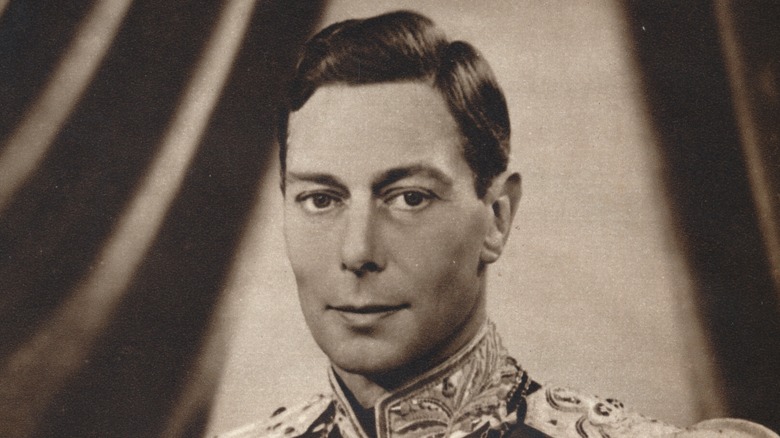Possible Names Prince Charles Could Use As King
The ascension of a new monarch is a solemn occasion for any country. On the one hand, a head of state has either retired or died. On the other hand, a new head now bears the crown, presaging a fundamental change in the character of the institution.
The United Kingdom has detailed plans in place to follow when Queen Elizabeth II dies and her son Prince Charles becomes king: Operation London Bridge and Operation Spring Tide, respectively. But before Charles tours the kingdom in the week following his mother's death, he will have to make one very important decision (via Newsweek). What will his name be?
When kings or queens ascend to the throne they have the royal prerogative to take any name they want under which to rule. In Thailand, for example, all kings of the current dynasty take the name Rama regardless of their birth names (via Reuters). In the U.K., monarchs typically take their given first names, but that isn't always the case.
Royal precedent
The first British monarch to eschew their first name was Queen Victoria. Princess Alexandrina Victoria was named after her godfather, Tsar Alexander I, but didn't like the name. When she became queen and could do what she wanted she went with her preferred name (via PBS). Victoria's son was named Albert Edward. The name Albert came from his father, Prince Albert of Saxe-Coberg and Gotha, and the name Edward came from his maternal grandfather, Prince Edward. Upon attaining the throne, he opted for the regnal name Edward VII because he didn't want to take away from his father's legacy (via The Gazette).
The last monarch (so far) to abandon their given name upon taking the throne was the current queen's father, George VI. He was born Albert Frederick Arthur George Windsor and went by Bertie for most of his life. His brother took the throne before him as King Edward VIII but abdicated after less than a year in order to marry Wallis Simpson, "a twice-divorced American socialite." Bertie took the name George from his father, George V, to emphasize the stability of the monarchy and promise a continuation of established traditions (via Biography).
When Charles becomes king he can theoretically rule under any name he chooses, but in practice he has four to choose from, based on his given names: Charles, Philip, Arthur, and George. But which one will he choose, and what sort of historical weight will that name carry?
King Charles III
The regnal name Charles carries a bit of baggage in British history. Charles I (above) was not a popular king. He reigned from 1625 to 1649. During that time he fought with his parliament and waged war on Scotland, France and Spain, emptying the national coffers and plunging the country into debt. His actions took the country into a civil war that ended with his death and the temporary abolition of the monarchy (via Britannica).
Charles II, the son of the previous Charles, was much more popular than his father, but he had plenty of enemies due to his tolerance of Catholics and attempts to legitimize their faith under the law. He had a reputation for hedonism and had at least a dozen illegitimate children, but produced no heirs (via Britannica).
Bonnie Prince Charlie styled himself as Charles III. He attempted to overthrow George II and install himself as king. His grandfather was James II & VII, brother of Charles II, who had been forced into exile (via The Jacobite Trail).
King Philip
Prince Charles' father was Philip Mountbatten. Choosing Philip for a regnal name would be a direct homage to his father, but the name doesn't have much history among English royalty. His father's namesake, Prince Philipp of Hesse-Kassel (great grandson to Victoria) was a member of the Nazi party during World War II. He was a close friend of Adolf Hitler and helped him to "acquire" art (via The Spectator).
Europe also already has two King Philips reigning at the moment. King Philippe of Belgium has ruled since 2013 when his father, Albert II, abdicated. He's a qualified fighter pilot who went on to study political science at Oxford and Stanford (via The Belgian Monarchy). In Spain, Felipe VI has been king since the abdication of Juan Carlos I in 2014. Charles and Felipe are actually second cousins, once removed, so it might be kind of weird to have two King Philips in the family. But it is interesting to note that Felipe's wife was the first commoner to be named queen in Spain and Charles' wife Camilla is another commoner who will likely be named queen as well (via Britannica and Biography).
King Arthur
Arthur would be a bold choice for Prince Charles to make. Arthur is a legendary king of Britain who stories say ruled in Wales and defended his kingdom from the invading Saxons who would eventually conquer the island (via World History Encyclopedia).
The version of the tale best remembered today is a bit more scandalous. In Thomas Malory's "Le Morte d'Arthur," Arthur is the illegitimate son of the king who has to draw the sword from the stone to prove himself. Once king, he does okay at first, but he accidentally sleeps with his sister while his best friend is sleeping with his wife. While he chases his best friend, his illegitimate son tries to take the throne. When Arthur confronts his son, they end up killing each other (via British Heritage Travel).
The closest England has come to a true King Arthur was in the early 16th century. Arthur was the oldest son of Henry VII, who was victor of the War of the Roses and founder of the House of Tudor. Unfortunately for Arthur (and Catholicism in England), he died of a mysterious illness, pushing his younger brother Henry to the front of the line, ruling as Henry VIII (via Town & Country).
George VII
Royal watchers speculate that George is Charles' most likely choice whenever he may take the throne. It's not a bad choice, as his grandfather George VI and great grandfather George V were both very popular kings, shepherding the country through both World Wars (via The Times).
Another reason that George could be a good fit is because it recalls the first four Georges. Even though George III lost the American colonies, the Hanoverian era was one of great prosperity for the United Kingdom and when it saw its greatest territorial expansion. It was also a period of political stability, with only six monarchs in nearly 200 years (via The Royal Household).
Whichever name Charles ultimately decides upon will be revealed relatively soon after he ascends to the throne. In the hours after he becomes king, a special council will be called which will issue a declaration of the ascension, along with the regnal name. But given the track record of the current queen, he might very well have a while to wait before any of that happens.
